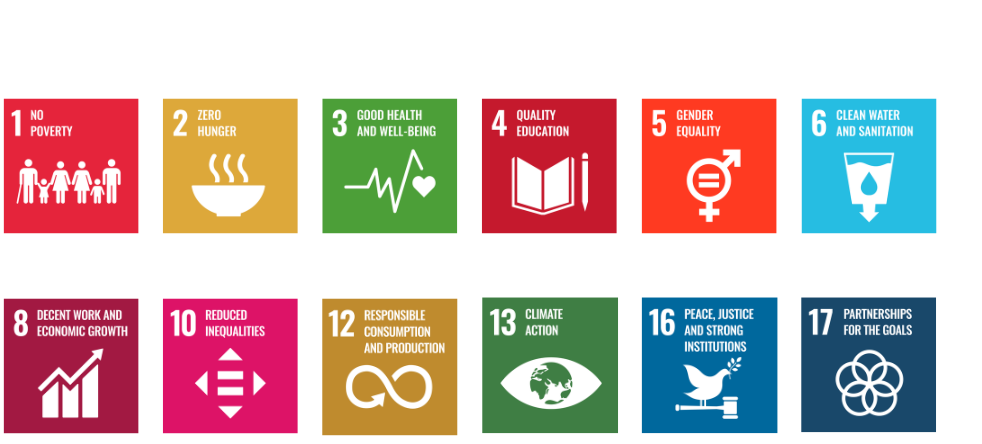- August 12, 2025
- Posted by: Hub Admin
- Categories: Article, Climatic Justice, Environmental Protection, Gender rights and inclusion, Human Rights, Peace-building, Poverty Eradication, Public Interest

By Pamela Udejimba
The 17 SDGs are designed to tackle pressing global challenges such as poverty, inequality, climate change, and more by 2030. However, achieving them requires more than international agreements or government programs. Policies may set direction, but real progress comes from putting solutions into practice at the grassroots level.
Across the world, young changemakers are finding innovative ways to tackle community-specific challenges while contributing to the broader SDG agenda. In 2025, the conversation in Nigeria is centred on how youth are transforming the Sustainable Development Goals (SDGs) from lofty global targets into everyday realities that directly impact communities.

While national statistics may point to progress in areas like education, health, and infrastructure, the lived realities often vary from state to state, community to community. Young Nigerians, deeply connected to the communities they serve, are finding ways to bridge this gap by stepping up with innovative, context-driven solutions to the nation’s most pressing challenges.
Platforms like Farmcrowdy connect smallholder farmers with investors and modern techniques, boosting food security and rural incomes. Tech Herfrica equips rural women farmers with digital tools, e-commerce access, and financial literacy, expanding markets and reducing waste. Startups such as Salpha Energy, founded by Sandra Chukwudozie, are delivering clean, solar-powered electricity to millions, while initiatives like the SDG Hero Project use gamified learning to teach students about sustainability and problem-solving.
Despite progress, challenges remain. Many youth-led initiatives operate on minimal budgets, rely heavily on volunteer labour, and struggle to gain recognition from decision-makers. In some cases, policies meant to address development challenges are designed without youth input, leading to solutions that fail to resonate with those they are meant to serve. Overcoming these barriers requires deliberate action such as investing in youth-led projects, opening formal channels for young people to contribute to governance, and fostering partnerships that connect grassroots efforts with national development plans.
The stakes for Nigeria are high. With one of the world’s largest youth populations, the country’s ability to achieve sustainable development depends on whether it can harness the full potential of its young people. This means moving beyond token gestures and ensuring that youth have the authority, resources, and trust to lead change in their communities.
International Youth Day 2025 is a call to recognise that the SDGs will only succeed in Nigeria when they are shaped by local realities, driven by community needs, and implemented through solutions designed and led by Nigerians themselves.
